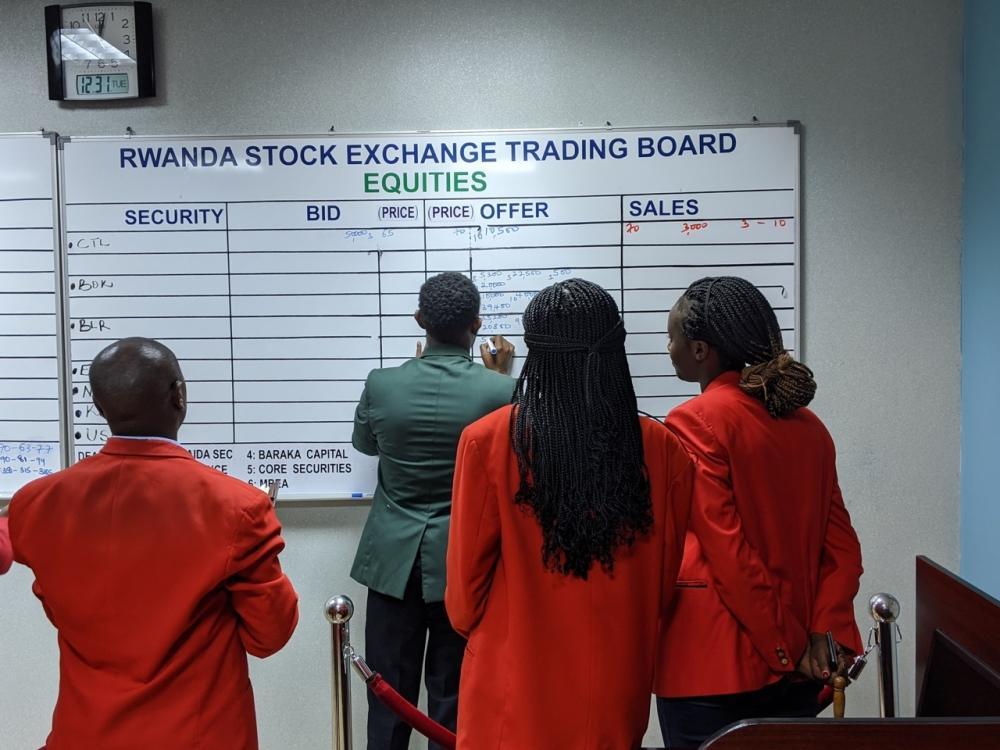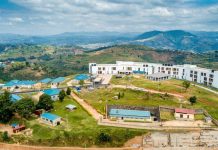Africa-Press – Rwanda. Rwanda is working towards achieving Vision 2050, a plan to turn the country into a high middle-income economy.
To make this happen, experts say capital markets play an important role by helping raise money for long-term projects and supporting economic development for everyone.
While the country’s capital market is still in its early stages compared to others in the region, it has demonstrated steady progress and resilience. More companies are going public, and the range of financial instruments continues to expand.
Over the past three years, the Rwanda Stock Exchange (RSE) has recorded a 15 percent increase in market capitalization. This growth has been driven by sound economic policies and a rising investor appetite for fixed-income instruments such as bonds.
“For the first time since our inception, we saw the listing of three pure corporate bonds in 2024, including from SMEs and infrastructure-linked entities,” says Pierre-Célestin Rwabukumba, CEO of Rwanda Stock Exchange (RSE).
Secondary market activity hit record highs, with Rwf 123.9 billion in turnover and 13 treasury bonds issued in the same period, something Rwabukumba says is an evidence of growing investor confidence.
Awareness, participation gap
Olivier Muneza, CEO of Mo Capital, a Kigali-based brokerage firm, observes that there has been sustained momentum in the capital market. “Retail investors are showing increased interest in corporate bonds, especially following the recent SME and infrastructure listings.”
However, he maintains that sophisticated and innovative instruments like exchange-traded funds (ETFs) and real estate investment trusts (REITs) are still in early stages, requiring more public education to build trust and participation.
Despite the gains, low public awareness and a big savings pool remain significant challenges.
Rwanda’s savings rate stands at 14 per cent of gross domestic product (GDP), well below the 28 per cent target set under the National Strategy for Transformation (NST2), the government’s five-year transformation agenda.
“Deepening the market requires both demand through increased savings and supply through more listings,” Rwabukumba emphasised.
Lack of education and limited access are major hurdles.
“We are responding through institutional-based investment clubs, digital outreach and participation in the Capital Market Investment Clinic, an RSE initiative aimed at preparing entrepreneurs for public offerings and boosting investor literacy.”
The liquidity challenge
Activity in the capital markets has increased, with small and medium-sized enterprises (SMEs), especially those in fintech, agribusiness, construction, and logistics, increasingly viewing the capital markets as a viable source of funding.
SMEs such as Mahwi Grain Millers, Prime Energy, Energicotel, and very recently, Africa Medical Supplier (AMS), have come to the market, raising alternative financing.
However, with just ten listed companies and equity market capitalisation of $2.7 billion, liquidity remains a challenge.
According to Rwabukumba, there is a need more savings to attract new products, and more products to generate activity. Technological innovation is seen as key to addressing some of these challenges.
“Our upcoming automated trading platform will lower transaction costs and speed up execution. That’s critical for encouraging more frequent trading and attracting new investors,” he notes.
Currently, trades are executed manually while settlements are automated but that’s set to change.
“We’ll go live with a fully automated trading platform integrated with the regional Capital Market Infrastructure very soon,” Rwabukumba says.
This will open Rwanda’s capital market to more domestic and foreign investors including the diaspora by allowing remote access.
For stockbrokers like Muneza, regional integration offers strategic upside. “It gives our firms more visibility and connects us to deeper capital pools. Once fully operational, we expect to see a surge in cross-border investment flows.
Regional outlook
Though RSE is smaller than its regional peers, it outperforms in certain capital market metrics.
“Our market capitalization to GDP ratio stands at 25%, compared to 13.98% in Kenya and 7.45% in Tanzania,” Rwabukumba notes. “Where Kenya excels is in institutional investment particularly through banks, pension funds, and insurers that bring liquidity and diversification.”
Muneza sees a clear path for Rwanda to follow: “We need to cultivate more long-term investors and attract pension funds into innovative instruments like ETFs and green bonds.”
Both Rwabukumba and Muneza agree that the priorities for developing Rwanda’s capital market are public education, product innovation, and policy advocacy.
For More News And Analysis About Rwanda Follow Africa-Press






